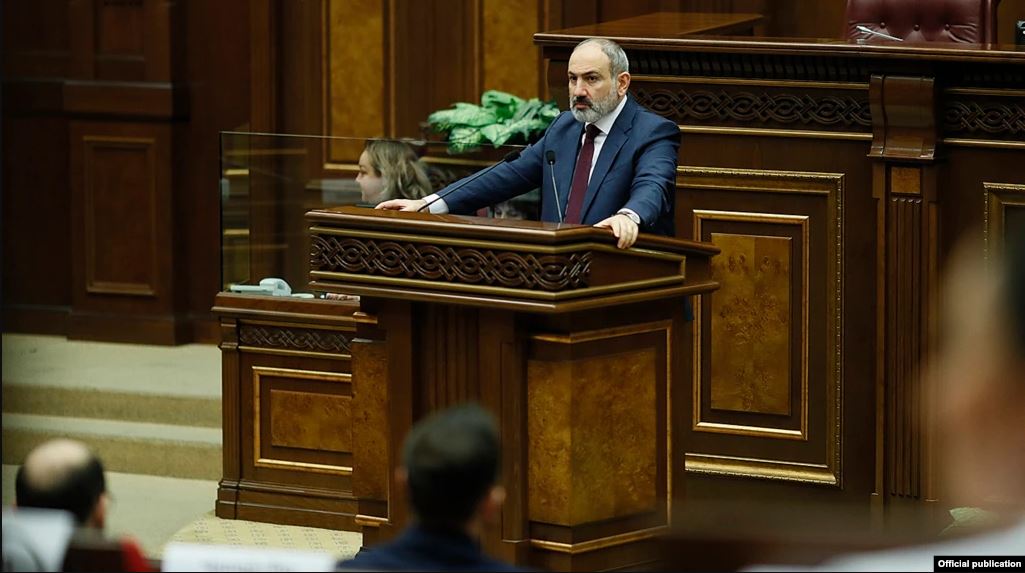Armenian Prime Minister Nikol Pashinyan dismisses opposition criticism over deteriorating ties with Russia and fostering “geopolitical rivalry” by aligning closer with the West. Pashinyan, addressing parliament for the second consecutive day, defended his government’s approach, emphasizing the prioritization of resolving border issues within Armenia’s internationally recognized boundaries, rather than harking back to notions of a broader historical Armenia.
Facing backlash for diversifying political and economic alliances, including strengthening ties with the European Union and the United States, Pashinyan rebutted claims that Armenia has become a battleground for geopolitical competition between Russia and the West. He argued that the OSCE Minsk Group, chaired by Russia, the United States, and France, engaged in legitimate geopolitical competition during its three-decade-long involvement in mediating the Nagorno-Karabakh conflict.
Highlighting tensions between Western Minsk Group co-chairs and Russia since the annexation of Crimea and the conflict in eastern Ukraine, Pashinian challenged critics to recognize Armenia’s historic role as a pawn in geopolitical rivalries and reiterated his administration’s commitment to steering Armenia away from such competition.
Recently meeting with Western leaders in Brussels, Pashinian secured substantial aid packages aimed at bolstering Armenia’s economy and reducing its dependency on Russia. However, Moscow responded angrily, accusing Western powers of attempting to diminish Russia’s influence in the South Caucasus region.




